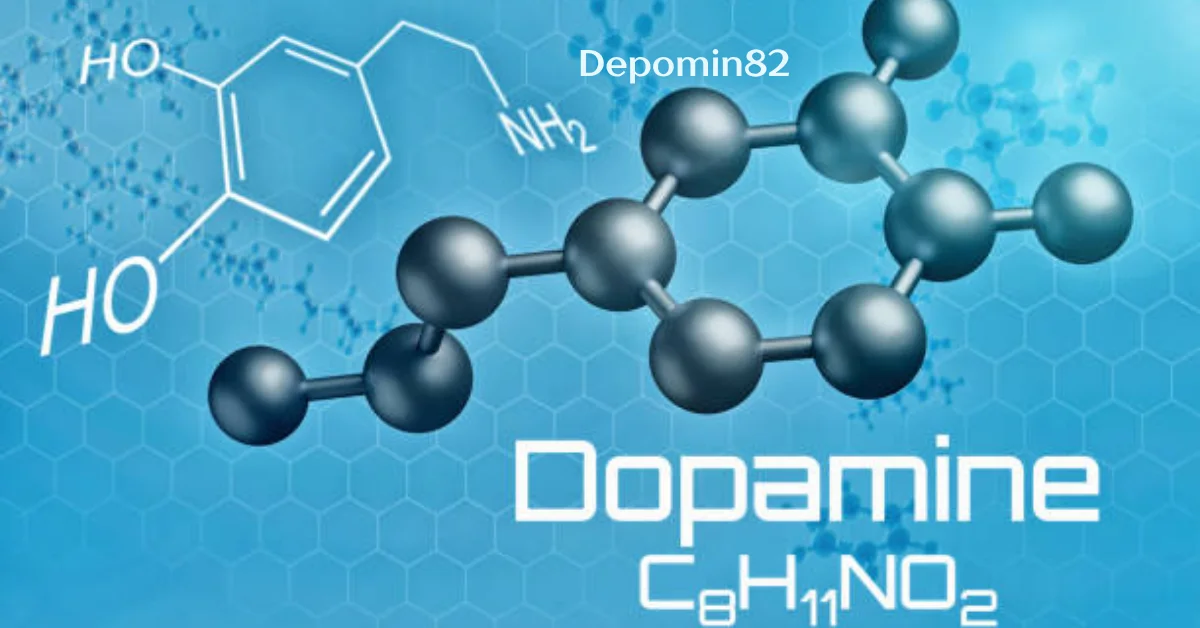Introduction to Depomin82
In a world where mental health challenges are becoming increasingly prevalent, the search for effective treatments has never been more urgent. Enter Depomin82—a groundbreaking compound that is capturing attention across both psychiatric and material science fields. With its unique properties and potential benefits, this innovative substance promises to reshape our understanding of mental well-being and open new avenues in technology. As researchers continue to explore its capabilities, many are hopeful that Depomin82 could be a game-changer for those struggling with mental health issues while also offering exciting applications beyond medicine. Let’s dive deeper into what makes Depomin82 so special and why it could be the next big thing in both realms.
The Science Behind Depomin82
Depomin82 stands out due to its innovative molecular structure. Researchers have engineered it to interact specifically with neurotransmitter receptors in the brain. This targeted approach enhances its efficacy while minimizing side effects.
The compound operates primarily on serotonin and dopamine pathways, crucial for mood regulation. By modulating these neurotransmitters, Depomin82 can alleviate symptoms of anxiety and depression more effectively than traditional medications.
Moreover, scientists are exploring how Depomin82 influences neuroplasticity—the brain’s ability to adapt and reorganize itself. Early findings suggest that this compound may promote healthier neural connections, potentially leading to long-lasting improvements in mental health.
In addition to its neurological benefits, ongoing research examines how the unique properties of Depomin82 could revolutionize material science by creating new composites with enhanced strength and flexibility.
Benefits and Uses of Depomin82 in Mental Health Treatment
Depomin82 is emerging as a promising player in mental health treatment. Its unique properties offer hope for those grappling with various conditions, including anxiety and depression.
Patients have reported significant mood improvements after initiating Depomin82 therapy. This compound appears to enhance neurotransmitter activity, promoting emotional stability and overall well-being.
Moreover, Depomin82 may reduce the side effects commonly associated with traditional medications. Many individuals find it easier to manage their symptoms without the burden of fatigue or weight gain often linked to other treatments.
The versatility of Depomin82 extends beyond just alleviating symptoms. It fosters resilience against stressors, allowing patients to navigate daily challenges more effectively.
As research continues, its potential applications could redefine standard protocols within mental health care, offering innovative solutions tailored to individual needs.
Applications of Depomin82 in Material Science
Depomin82 is gaining traction beyond the realm of mental health. Its unique properties make it an exciting candidate in material science.
Researchers are exploring its potential as a polymer additive. By enhancing mechanical strength and flexibility, Depomin82 can improve the lifecycle of various materials. This transformation could result in more durable consumer products.
Another promising application lies in coatings and adhesives. The compound’s ability to bond at molecular levels may lead to innovative solutions for industrial applications. These advancements can reduce wear and tear on machinery, promoting sustainability.
Furthermore, Depomin82 shows promise in nanotechnology. Its molecular structure allows for precise manipulation at nanoscale levels, which opens new avenues for electronic devices or smart materials.
As scientists delve deeper into these possibilities, we may witness significant breakthroughs that reshape manufacturing processes across multiple industries.
Difference between Depomin82 and Other Medications/Compounds
Depomin82 stands out from traditional mental health medications due to its novel mechanism of action. Most conventional treatments focus on neurotransmitter modulation, often leading to unwanted side effects. In contrast, Depomin82 targets specific neural pathways with greater precision.
Additionally, many existing compounds require long-term use for efficacy, which can result in dependency and withdrawal symptoms. Depomins82 aims to offer quicker results with a more favorable safety profile.
Another key distinction is the compound’s dual functionality. While primarily developed for mental health applications, it shows promise in material science as well—something not commonly seen in other medications.
Moreover, unlike standard antidepressants that may take weeks to show improvement, early indications suggest that Depomin82 could lead to faster response times. This unique approach makes it a compelling contender among both pharmaceutical and research communities alike.
Clinical Trials and Results
Recent clinical trials involving depomin82 have generated significant excitement in the medical community. Researchers aimed to evaluate its efficacy and safety in treating various mental health disorders.
These trials involved diverse participant groups, enhancing the reliability of results. Initial findings indicated that many individuals experienced reduced symptoms of anxiety and depression after a course of treatment with depomins82.
Moreover, researchers noted minimal side effects compared to traditional medications. This aspect has led to growing interest among healthcare professionals looking for innovative therapeutic options.
The data collected is paving the way for larger-scale studies. Ongoing research aims to explore optimal dosages and long-term effects, which could further solidify depomin82’s role in mental health care.
As more results emerge from ongoing investigations, excitement continues to build around this compound’s potential impact on patient well-being.
Future Possibilities for Depomin82
The future of Depomin82 holds immense promise across various fields. Researchers are keen to explore its potential beyond mental health treatment.
One exciting avenue is the possibility of combining Depomin82 with existing therapies. This could enhance overall effectiveness for patients struggling with complex disorders.
Additionally, studies may reveal new applications in neuroprotection, potentially safeguarding brain function during trauma or degeneration.
In material science, innovations could emerge as scientists investigate how Depomins82 interacts with polymers and other materials. This might lead to groundbreaking developments in creating smart materials.
Global collaborations among research institutions will likely accelerate discoveries surrounding this compound. The more we understand about its mechanisms, the broader the scope of potential uses becomes.
As researchers push boundaries and expand knowledge on Depomin82, unexpected breakthroughs may redefine our approach to both mental health and engineering challenges ahead.
Conclusion
Depomin82 stands at the forefront of innovation, bridging gaps in both mental health treatment and material science. Its unique properties make it a promising solution for individuals struggling with various mental health conditions. The compound’s ability to interact with neurotransmitters offers new hope for effective treatments.
In the realm of material science, Depomin82 is proving to be a game-changer as well. Its applications can lead to advancements in creating more durable and efficient materials, enhancing everything from electronics to construction.
The clinical trials backing Depomin82 show encouraging results that could reshape modern medicine. As research continues, we may uncover even more benefits and uses for this remarkable compound.
The future looks bright for Depomin82. With ongoing studies exploring its full potential, we are just beginning to scratch the surface of what this innovative compound can achieve across multiple fields.
There is no doubt that as awareness grows around depomin82, so too will interest in how it might transform lives—both mentally and materially.











